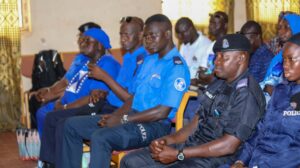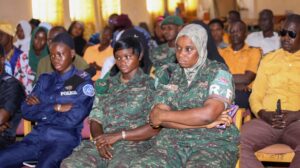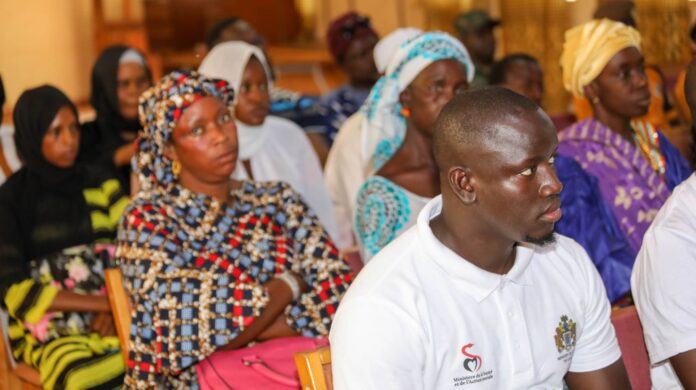By Alieu Jallow
In the rural heartlands of The Gambia, where fear and silence often defined the relationship between civilians and security forces, a new approach is taking root—one conversation at a time.
ActionAid International The Gambia (AAITG) recently organized a Community Security Bantaba in the North Bank Region, bringing together police officers, soldiers, youth leaders, and community elders. For many, it was the first time they sat face-to-face with security personnel not in fear or conflict, but in honest conversation.

Omar Trawally, a member of the North Bank Regional Youth Committee, emphasized that security is a national concern and cannot be left to government institutions alone.
“Citizens must understand the role and challenges of our security services. In return, the security forces must also be responsive to the rights and needs of the people they protect,” he said.
Held under ActionAid’s Local Rights Programme 9 (LRP9), the forum wasn’t just a platform for lectures. It was a space where fears, questions, and frustrations were aired without judgment. The message was clear: peacebuilding is a shared responsibility.
“I now realize that I have a role to play,” said Adama Nyan, a youth leader from Jokadu. “Reporting suspicious behaviour, educating my peers about drug abuse, and promoting peace are part of my civic responsibility. I used to think security was just a police issue, but today I changed that.”
Inspector Almameh E. Susoh, Regional Taskforce Commander in Farafenni, noted that this shift in thinking didn’t happen overnight, but dialogue is changing how communities and law enforcement relate.
“Civilians are the majority, and we can’t be everywhere at once. Through collaboration and communication, we can detect and prevent crime early. This isn’t just about policing; it’s about building a safer Gambia together,” he said.
For Inspector Susoh, proactive engagement isn’t optional—it’s essential.
“We believe in preventing crimes before they happen. These bantabas help build trust, clarify our roles, and allow us to listen to the community’s concerns,” he added.

Saikou Darboe, Manager of LRP9 at ActionAid, said the idea behind the bantaba was born out of rising tensions and misunderstandings between security forces and civilians.
“We saw the rising tension and misunderstanding between young people, the public, persons with disabilities, and law enforcement. So, we created a safe space where both sides could listen, learn, and reconnect,” he explained.
He added that the transformation is already visible.
“Young people who once feared the police now see them as partners in peacebuilding. These sessions are not just dialogues—they are seeds of transformation. And we are committed, inshallah, to sustaining this momentum.”
For Mariama Secka of Ngene Sanjal, the experience was personal.
“We all want the same thing—peace. But for that to happen, we must communicate, collaborate, and commit to understanding each other,” she said.
As ActionAid prepares to expand these security dialogues across other regions, the message is unmistakable: real peace starts with real conversations.
In the words of Omar Trawally:
“This dialogue is not charity; it’s our right. Peace starts with understanding, and understanding begins with conversation.”




